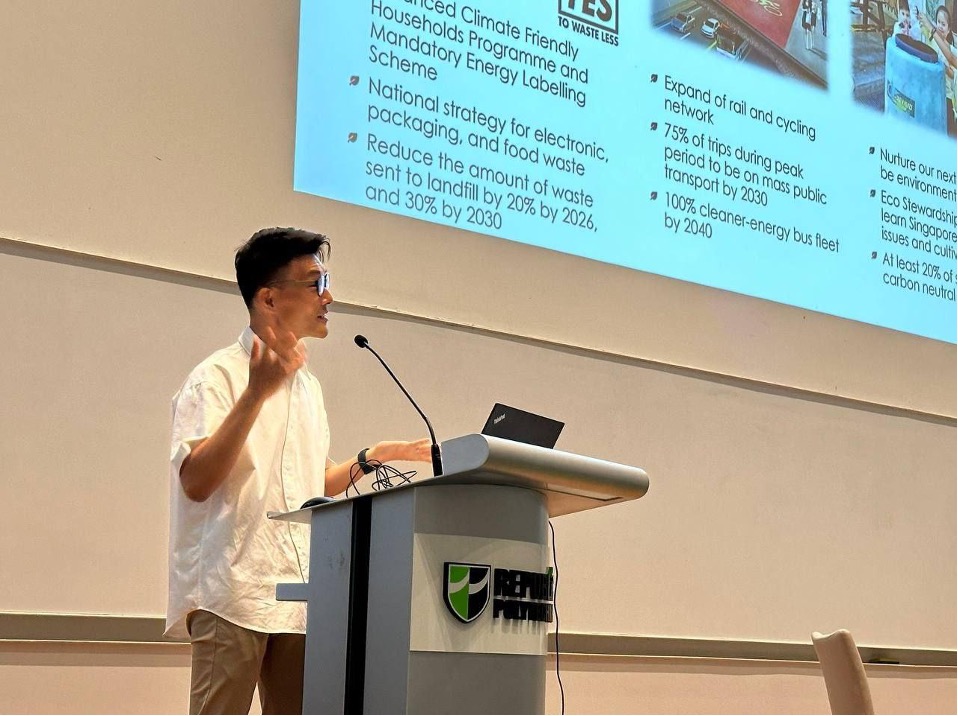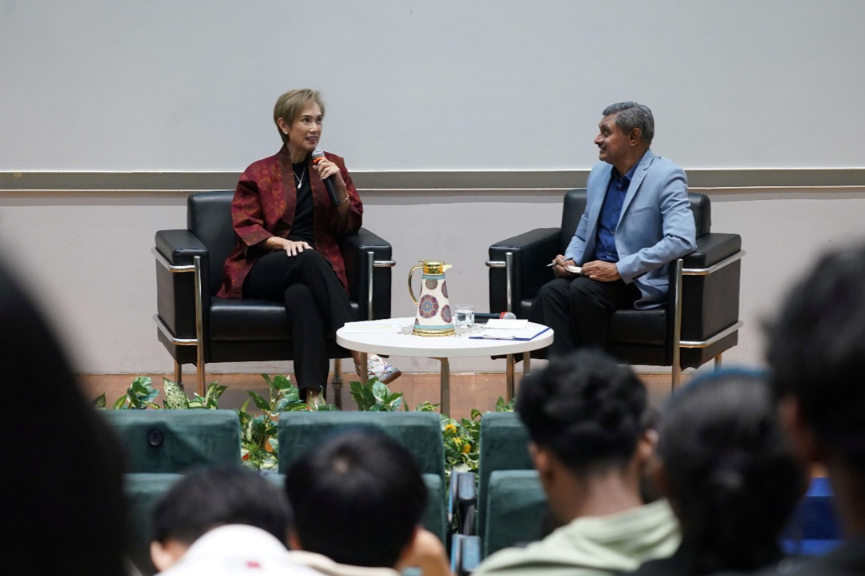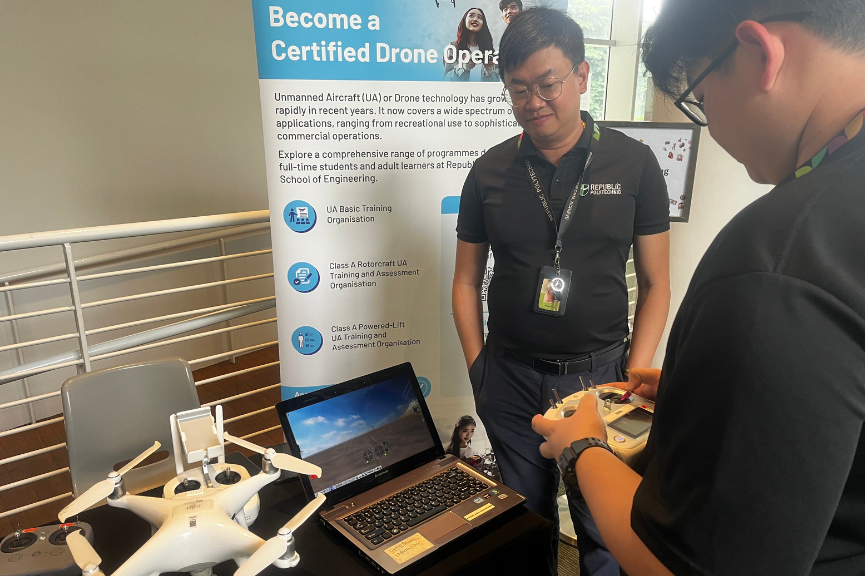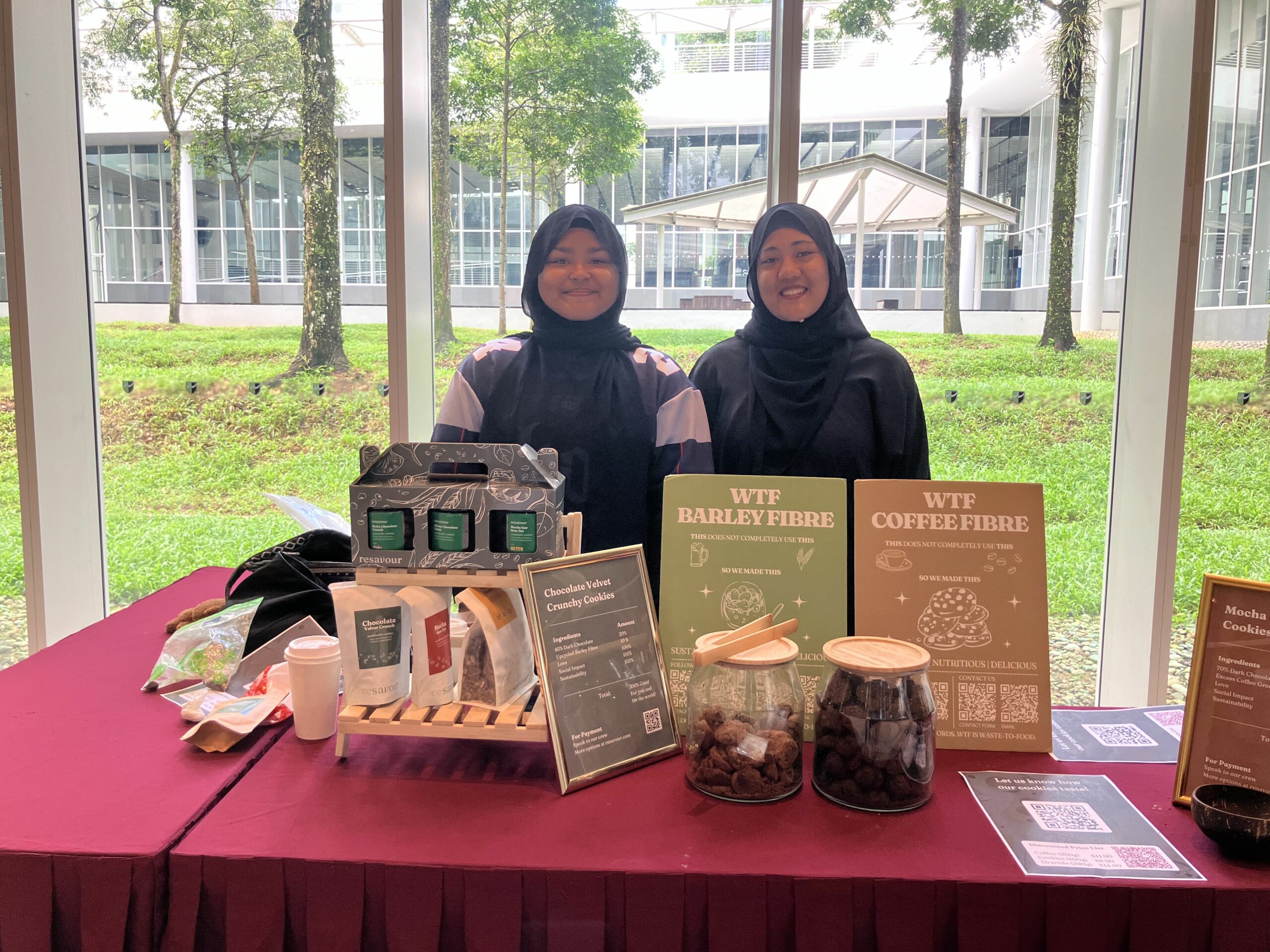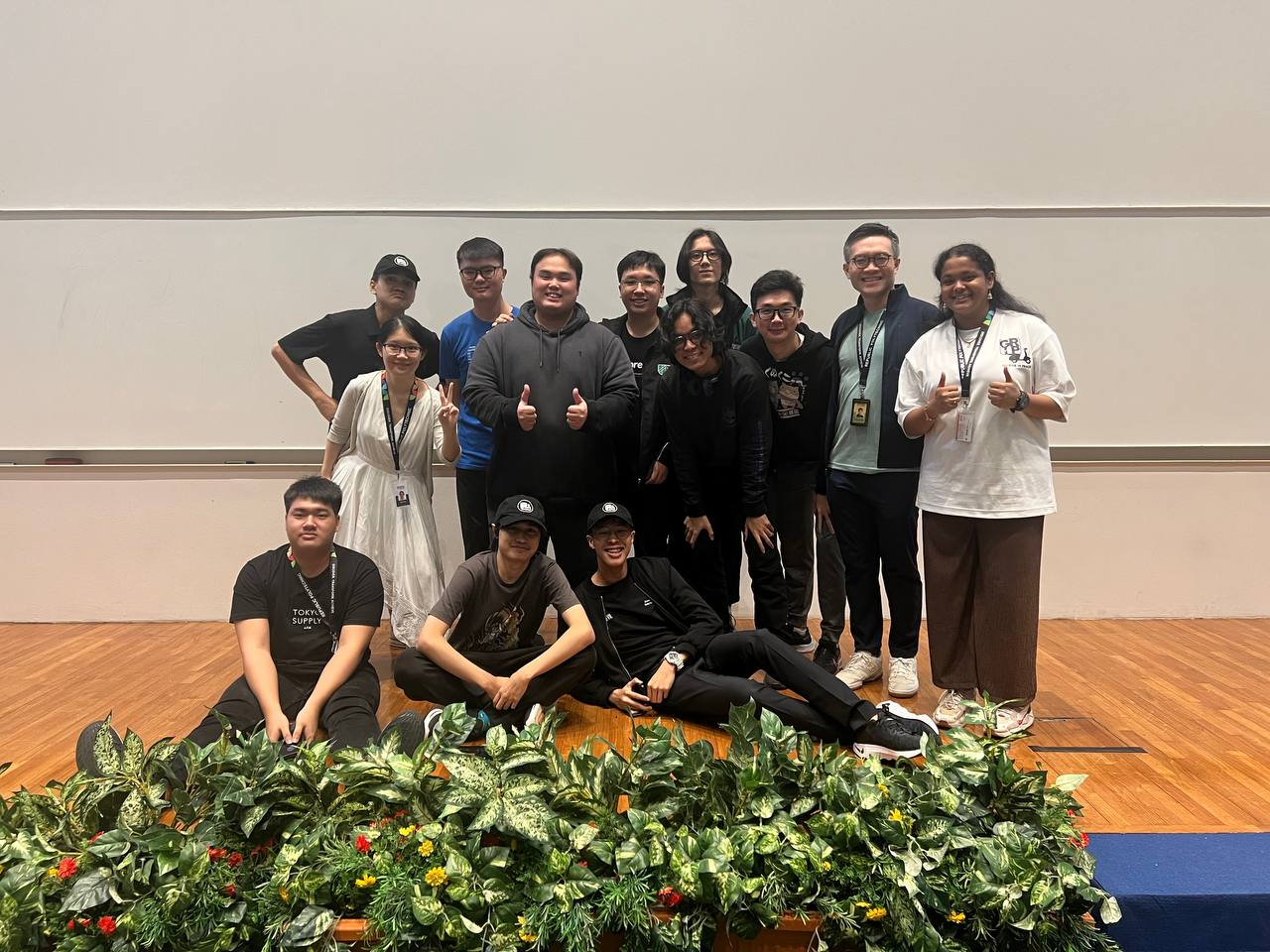On 28th May 2024, Republic Polytechnic hosted a Singapore Perspectives Dialogue session, allowing Republic Polytechnic students to voice their thoughts and opinions.
Mr. Baey Yam Keng, Singapore’s Senior Parliamentary Secretary of the Ministry of Sustainability and the Environment (MSE), was invited to share his knowledge and expertise in sustainability. He provided insights into the Singapore Green Plan 2030 and answered student’s burning questions about the nation’s future.
Singapore Green Plan 2030
Singapore Green Plan 2030: A Summary
The Singapore Green Plan 2030 stands as a beacon of hope in an era overshadowed by environmental concerns. It is a comprehensive blueprint designed to guide the nation towards a more sustainable and resilient future. Mr. Baey emphasised the urgency, highlighting Singapore’s vulnerability as a small, low-lying city-state in the face of climate change. With rising sea levels and extreme weather events becoming more frequent, the need for action is undeniable
Questions For The Future
Following Mr. Baey’s presentation, Republic Polytechnic students from various disciplines shared their questions and concerns regarding Singapore’s green efforts, support for local produce, and plans for the transport and aviation industries.
Here are some of the key questions posed by students and Mr. Baey’s responses:
Inspiring Our Neighbours To Take A Stand
As climate change is a global issue, Singapore cannot focus solely on itself. Questions were raised about Singapore’s role in collaborating with neighbouring countries to ensure collective efforts towards a greener society.
Mr. Baey highlighted Singapore’s openness in sharing its methods and plans with other countries, particularly neighboring countries that may benefit from such exchanges. Despite Singapore’s relatively small carbon emission output, he stressed the importance of global cooperation and modelling the way with Singapore’s Green Plan to inspire other countries.
Protecting Singapore’s Wildlife
Concerns were raised about Singapore’s wildlife and green spaces amid urbanisation efforts. Mr. Baey reassured students that Singapore carefully considers the protection of nature and fauna. He cited the Cross Island Line construction as an example, where the government managed to work around disturbing wildlife by digging deeper underground, away from animals and plants on the surface.
Staying Competitive Yet Sustainable
Questions also arose about how Singapore plans to stay competitive as a global business hub with new sustainability policies, such as increased carbon taxes.
Mr. Baey explained that committing to greener business operations would attract companies to Singapore. He emphasised that businesses would be incentivised to operate in Singapore due to its reputation for doing the right thing in sustainability.
“If Singapore does its green strategies well, these businesses will want to be in Singapore. They will want to come to us, and do more with us because Singapore has a reputation for doing the right thing.”
Mr. Baey
You can Help Transform Our City
- Individual Actions Matter
While the government plays a crucial role in implementing policies and initiatives, each of us has a vital role to play in shaping a more sustainable future. Small everyday actions, such as reducing waste, conserving energy, and supporting local produce, contribute to the larger goal of building a greener Singapore.
The collective impact of our daily choices, like using reusable water bottles and bags or reducing energy consumption, cannot be underestimated.
- Advocacy and Engagement
Raising awareness and educating oneself and others about the importance of sustainability is essential. By sharing information and knowledge, we can inspire more people to take action and make positive changes in their daily lives. Working together creates a ripple effect, leading to a significant impact.
At Republic Polytechnic, the Green Communications Network brings together individuals passionate about environmental sustainability. This group engages in meaningful activities, attends talks on sustainability, and advocates for their cause on social media. Led by the dedicated Mass Communications lecturer Ms. Leong Phei Phei, the network is a vibrant hub for those committed to making a positive impact on the environment.
- Innovation
Innovation is key to addressing sustainability challenges. Youth in Singapore play a vital role in fostering innovation for a greener future. Many youth-led start-ups focus on sustainability, from thrift stores offering quality pre-loved clothing to artisans repurposing materials that would otherwise end up in landfills.
Our Role in the Singapore Green Plan 2030
As Republic Polytechnic students, we have the power to make a difference. Let’s heed the call to action and seize the opportunity to be agents of change. Together, we can actively participate in the Singapore Green Plan 2030, and pave the way towards a greener, more resilient Singapore – for you and I.

